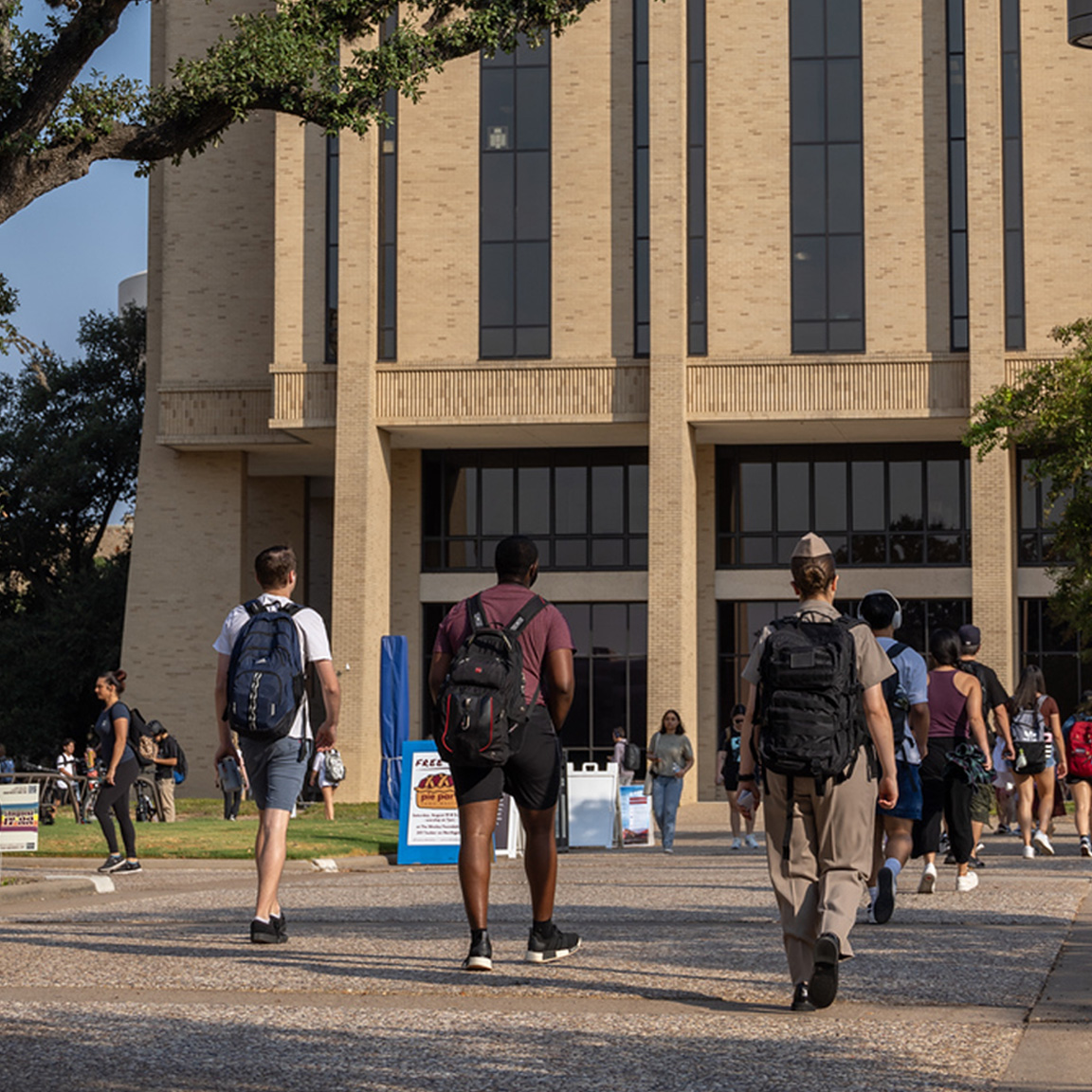
Education Research Center
Transforming education policy & practice
About the ERC
The Texas A&M University Education Research Center (ERC) was established as a university-wide research center in 2007, with the mission to investigate the nature of educational practice and school resources and to examine their impact on student learning and achievement gaps in order to improve PreK-16 educational policy and decision-making.
In addition to its research agenda, the ERC conducts multiple evaluation and assessment studies in collaboration with a wide range of clients and stakeholders. Researchers from the ERC complete formative and summative projects and utilize a variety of methodologies to meet the needs of its diverse project partners.
ERC researchers focus on topics ranging from STEM education to college readiness and the effectiveness of charter schools. A significant portion of the ERC’s research and evaluation studies focuses on the areas of science, technology, engineering, and mathematics (STEM) in PreK-16 education.
For example, ERC conducted a mixed-method study of schools across Texas implementing an online mathematics learning system, analyzing its impact on student achievement.
Upcoming Events
Date: 5/6/2025
Education Research Center Colloquium: Conversations with Texas Education Agency on State Data
Join the Texas A&M University Education Research Center for an engaging day of insights and discussions on the use and potential of state education data. Current TEA Attendees: Mark Olofson: Director of Educator Data, Research, and Strategy Jeremy Landa: Director of Educator Data, Research, and Strategy for Educator Preparation, Certification, and Enforcement Paige Tooley: Director of Project Management - Educator Data, Research, and Strategy Amanda Whaley: Director of Educator Data, Research, and Strategy for District Support, Planning, and Innovation Experts from the Texas Education Agency will address topics including uncertified teachers and the Teacher Incentive Allotment program. We will also host a moderated discussion on how faculty, researchers and graduate students can tap into state data to explore the questions that matter most to them. Tuesday, May 6, 2025 10:00 am–3:00 pm Rudder Tower 707 or via Zoom
- Rigorous research and evaluation design
- Formative and summative evaluation design and implementation
- Logic model development
- Needs assessment
- Measurement of implementation fidelity
- Grant proposal assistance
- Focus group facilitation
- Database development
- Data management
- Face-to-face and telephone interviews
- Structured observations
- Survey administration, analysis, and reporting
- Research literature review
- Technical report writing and presentation
- Review and assessment of documents
- Data analysis and summary
- Case study design and implementation
- Instrument development
- Thematic analysis of qualitative data
- Statistical analysis using SPSS, SAS, and STATA
Our Work
Our staff specialize in combining qualitative and quantitative research methods to conduct analysis on education policy. The ERC provides quality, timely reports designed to inform and assist with various stakeholders regarding policy decisions. The ERC has conducted policy analysis and impact evaluations for private and public agencies working to identify effectiveness and impact of policies, as well as areas to improve quality or efficiency of programs.
The ERC is researching what is and is not working for both students and teachers in our schools. Our research includes evaluating controversial programs, such as the influence and effect on academic achievement by charter schools in Texas. The ERC’s policy research also includes working with non-profit organization, United Way of Houston to assess the impact of United Way’s Urban Education Initiative on children and youth they serve in Houston, TX.
Funded by: International Baccalaureate Organization (IBO)
The Education Research Center (ERC) at Texas A&M conducted a literature review and curriculum document analysis of student collaborative practices in International Baccalaureate (IB) programs. Collaboration is identified as an integrated part of learning components and assessment models across IB programmes.
For this study, ERC researchers:
- Conducted a best evidence synthesis of research on teaching and assessing student collaboration In K-12 settings,
- Analyzed IB curriculum documents for essential elements of collaborative practice, and
- Made recommendations for the enhancement of student collaboration in IB programmes.
Funded by: Texas A&M Department of Physics and Astronomy
During the fall of 2014, the ERC conducted an external evaluation of the Discover, Explore, and Enjoy Physics (DEEP) program at Texas A&M University. DEEP was established in 2012 by the Department of Physics and Astronomy at Texas A&M. The goal of the program is to enhance undergraduate and graduate students’ learning and research experience by incorporating active/service learning and teamwork. A key component of DEEP is to encourage undergraduate student participation in high-profile outreach activities, such as:
- The annual Texas A&M Physics and Engineering Festival.
- Fall and spring DEEP Showcases, and
- TAMU Physics Shows
under the guidance of DEEP graduate mentors from the Departments of Physics and Astronomy and Aerospace Engineering.
The evaluation addressed the following DEEP objectives:
- Increase undergraduate participants’ knowledge of physics and engineering concepts,
- Positively impact undergraduate student participants’ analytics and hands-on skills in conducting research,
- Enhance undergraduate student participants’ communication skills,
- Encourage undergraduate student participants’ teamwork skills,
- Improve graduate student participants’ leadership skills, and
- Increase graduate student participants’ team building skills.
Surveys and interviews were utilized with undergraduate students as well as graduate mentors to examine the impact of program activities on participants’ communication and teamwork skills.
Technical Reports
- Rollins, K. B., Franco-Fuenmayor, S. E., Padrón, Y. N., Waxman, H. C., Boriack, A. W., Barahona, E., Weber, N. D., & Widdison, Y. C.. (2014, November). Evaluation of United Way of Greater Houston Education Initiative. United Way of Greater Houston.
Journal Articles
- Kwok, A., De La Cruz, I., & Kwok, M.. (2024). Clinical teacher learning trajectory: Exploring field supervisor written feedback on clinical teacher pedagogy. American Education Research Journal.
Contact the ERC
Co-Directors
Mailing Address & Location
Texas A&M Education Research Center
College of Education and Human Development
4232 TAMU
College Station, TX 77843
